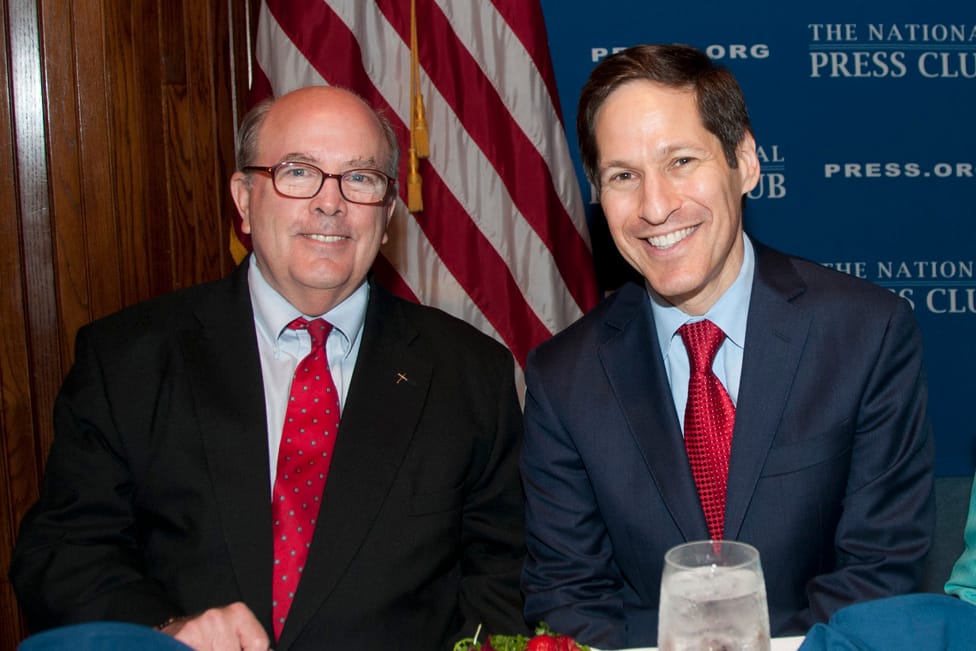A Critical Look at Trump's Plans to Cut Public Health
We have been critical of the Centers for Disease Control & Prevention's antialcohol efforts because they duplicate those of several other agencies and seem more ideologically based than science based. But just as one rotten apple doesn't necessarily mean an entire orchard is rotten, so too
We have been critical of the Centers for Disease Control & Prevention's antialcohol efforts because they duplicate those of several other agencies and seem more ideologically based than science based.
But just as one rotten apple doesn't necessarily mean an entire orchard is rotten, so too an agencies ill-advised actions in one area doesn't mean everything that agency does is wrong.
Tom Frieden, whom I met during a National Press Club luncheon several years ago (see photo above), has written an article for the New England Journal of Medicine looking at the Trump Administration's plans to eliminate or transfer some CDC programs. The effect of these transfers, Frieden writes, will be to make Americans less safe and to increase costs.
Frieden writes as an insider; he's a former director of the agency. That doesn't mean he's wrong. He describes what various CDC units do. But what really got our attention was when it wrote:
"When a new disease emerges, it's often unclear whether the cause is infectious (such as Legionnaire's disease, toxin-mediated (such as toxic shock syndrome) or chemical (such as contaminants in vaped tobacco products.) The CDC identified these threats and many others; only 2 of the 10 most important public health accomplishments of the 20th century were related to infectious diseases."
Frieden acknowledges that "the CDC could certainly become more effective." To the extent it's not, that's the fault of both CDC leadership and of Congress which loudly touts its oversight responsibility but seems to overlook a great deal.
He also acknowledges that "rational budget reductions are possible." That's true at every level of government. During the six years I served on a town council in New Jersey – five of them as council president and deputy mayor – we went over each department's budget line-by-line.
We often asked the department head if there wasn't something they could do to help us trim their request a bit. Inevitably, they identified reasonable areas or actions. Again, it is the responsibility of Congress to push the administration – regardless of party – for the necessary actions to enable the government to operate without increasing the budget more than the cost of living..
Frieden concludes by stating that "although current policies imperil health, three facts provide grounds for hope." It's a thoughtful article and well worth your time. You can read it here.
